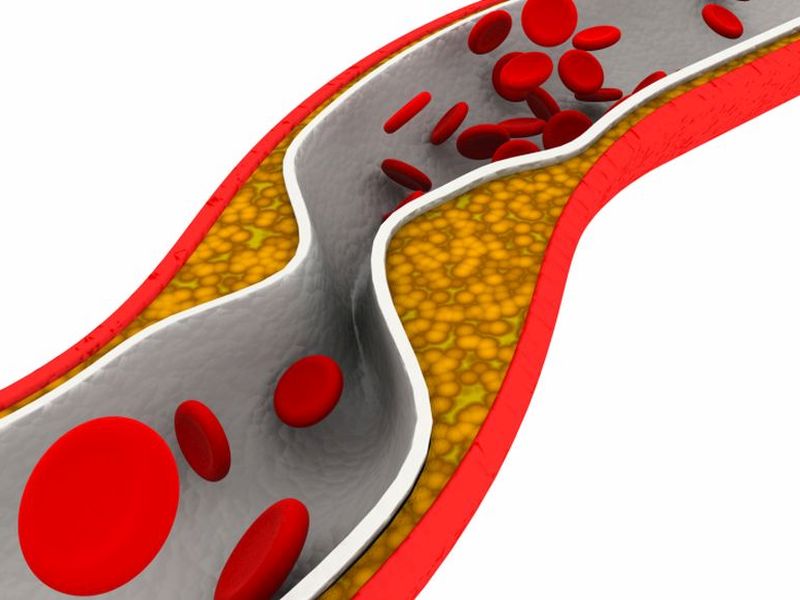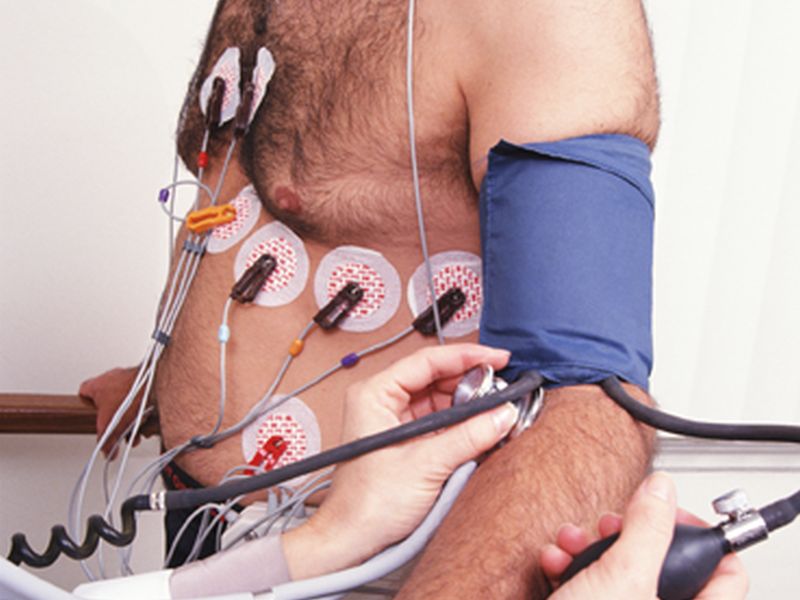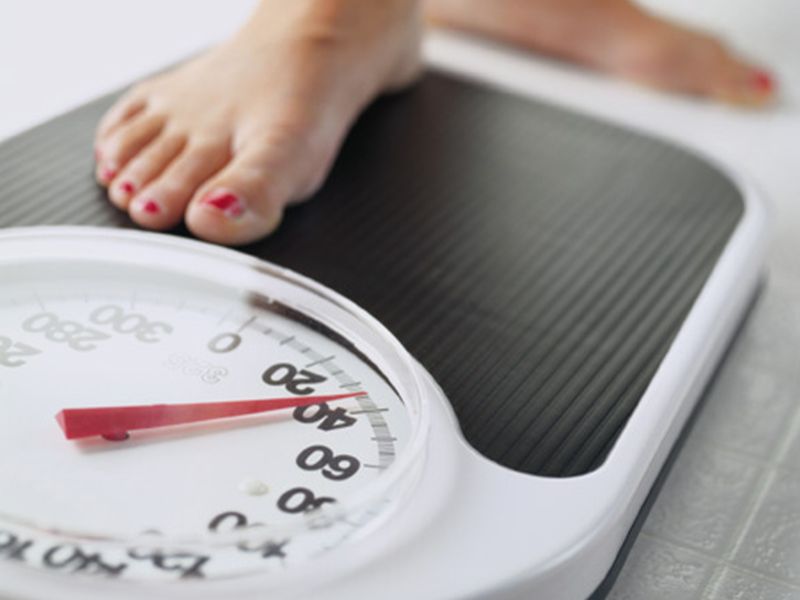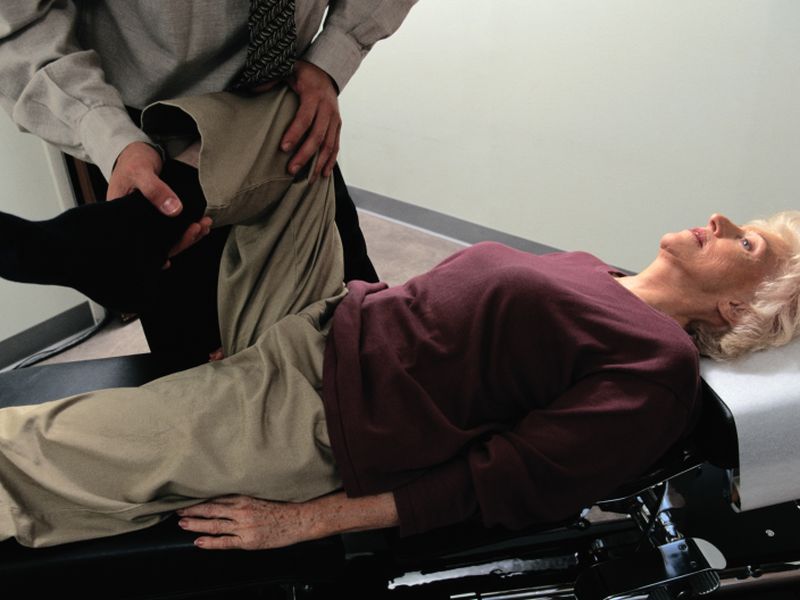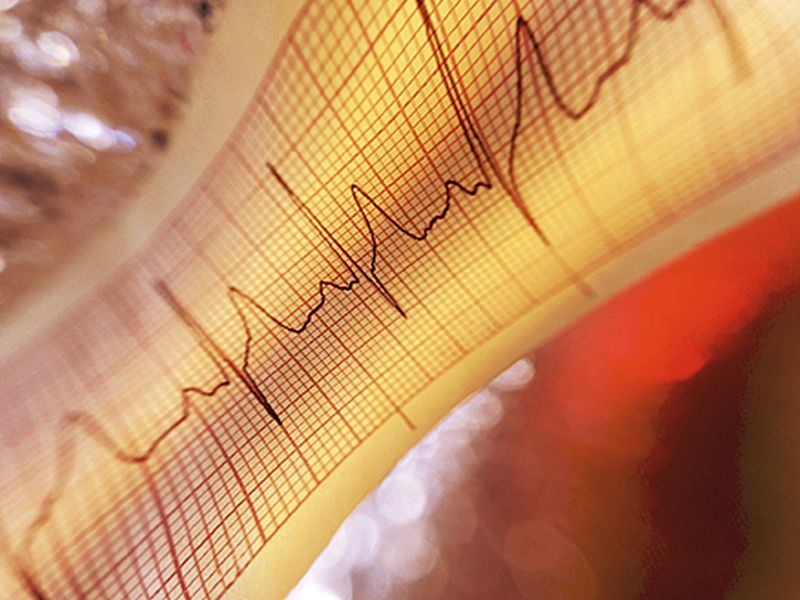Get Healthy!
123 Results for search "Heart Attack: Symptoms / Warning Signs / Risks".
Health News Results - 123
Black Americans face a heightened risk of stroke, and a new study suggests that abnormalities in the heart's upper chambers play a role.
Experts said the findings, published Nov. 25 in the journal Neurology, point to an under-recognized factor in Black Americans' stroke risk.
It has long been known that in the United States, Black adults are particularly hard-hit by ischemi...
- |
- November 25, 2020
- |
- Full Page
The Black Lives Matter movement put racism in the United States under the glare of the public spotlight in 2020. And at its recently concluded annual meeting, the American Heart Association pledged to fight racial disparities in heart health and boost the life expectancy of all Americans.
The COVID-19 pandemic has shown that systemic racism plays a large role in the kind of health an Amer...
- Dennis Thompson
- |
- November 23, 2020
- |
- Full Page
Hormone therapy can be a lifesaver for men with prostate cancer, but it also appears to put some at increased risk of heart problems, a new study reports.
Long-term androgen deprivation therapy (ADT) increased the risk of heart-related death nearly fourfold in a group of prostate cancer patients, and also caused their heart fitness to decrease, researchers found.
There is one import...
- Dennis Thompson
- |
- November 20, 2020
- |
- Full Page
The spice that adds punch to your favorite Kung Pao chicken, Tex-Mex chili or Indian curry may also help save your life.
Preliminary research shows that eating chili pepper may reduce your risk of death from heart disease, cancer and other causes, building on past studies that have found chili pepper to have health benefits.
"I think a lot of people are going to find this informatio...
- Cara Murez
- |
- November 9, 2020
- |
- Full Page
Inflammation of the heart muscle (myocarditis) is less common in COVID-19 patients than previously thought, according to a new study.
Previously reported rates of myocarditis in COVID-19 patients ranged from 14% among recovered athletes to 60% in middle-aged and older recovered patients.
"Although it is clear that COVID-19 impacts the heart and blood vessels, to date, it has been di...
- Robert Preidt
- |
- November 4, 2020
- |
- Full Page
Many married couples or domestic partners share a lot: the same house, bills, pets and maybe children. A new study found they often also share the same behaviors and risk factors that can lead to heart disease.
Researchers assessed heart disease risks and lifestyle behaviors of nearly 5,400 U.S. couples enrolled in an employee wellness program.
They used the risk factors spelled...
- Cara Roberts Murez
- |
- October 27, 2020
- |
- Full Page
Prescriptions of cholesterol-lowering statins for heart disease patients rose significantly when doctors were prompted to choose whether or not to order them, according to a new study.
It included 82 cardiologists and more than 11,000 patients. Doctors randomly received one of two "nudges," or notifications, in their patients' electronic health records.
One was a "passive ch...
- Robert Preidt
- |
- October 9, 2020
- |
- Full Page
Middle-aged men who were anxious or depressed teens are at increased risk for heart attack, according to a large, long-term study.
It included more than 238,000 men born between 1952 and 1956 who underwent extensive exams when they were 18 or 19 years old and were followed to age 58.
Men diagnosed with anxiety or depression in their late teens had a 20% higher risk of he...
- Robert Preidt
- |
- August 26, 2020
- |
- Full Page
Stroke is more deadly among Black people than whites, and the reason may come down to genetics.
Researchers who studied the genomes of more than 21,000 Black people found that a common variation near the HNF1A gene was tied to an increased risk of stroke in people of African descent.
The gene has been linked to stroke and heart disease.
"Given the undue burden t...
- Steven Reinberg
- |
- August 13, 2020
- |
- Full Page
Long-term exposure to fine particle air pollution is a major risk factor for heart disease and death, but even small reductions in pollution levels can reduce the threat, a new study shows.
Researchers analyzed data from more than 157,000 adults, aged 35 to 70, in 21 countries.
Between 2003 and 2018, more than 9,100 people had heart disease events, including more than 4,000 ...
- Robert Preidt
- |
- June 29, 2020
- |
- Full Page
Over a lifetime, women who've had a preterm delivery have a higher risk of heart disease, new research suggests.
The findings point to the fact that doctors should include a woman's reproductive history in assessments of heart disease risk, according to the researchers.
"Preterm delivery should now be recognized as an independent risk factor for IHD [ischemic heart disease] ...
- Robert Preidt
- |
- June 29, 2020
- |
- Full Page
A new study finds that 1 in 5 people under age 40 now have metabolic syndrome, a group of risk factors that together increase the odds for many serious conditions, including diabetes, heart disease and stroke.
The rate of metabolic syndrome is rising in all age groups -- as many as half of adults over 60 have it. But among 20- to 39-year-olds, the rate rose 5 percentage points over f...
- Serena Gordon
- |
- June 23, 2020
- |
- Full Page
Knowing how much older adults exercise can predict their odds of developing heart disease or dying early, a new study suggests.
Asking patients during atherosclerosis (clogged arteries) screening about their levels of exercise can help start treatment sooner, researchers say.
"With people now living longer, there is a growing need to determine how we can best detect latent...
- Steven Reinberg
- |
- June 5, 2020
- |
- Full Page
Women who drink a lot of sodas, sweetened juices and other sugary drinks are at greater risk of developing heart disease, a new study finds.
Those who drink one or more a day have nearly a 20% higher risk than women who never do. And it's not just soda that's problematic: Fruit drinks with added sugars are also a culprit, researchers say.
Though the study does not pro...
- Steven Reinberg
- |
- May 13, 2020
- |
- Full Page
As the toll of the COVID-19 pandemic grows, it is increasingly clear the infection is more than a lung disease. Many patients are developing heart complications, though the reasons are not fully understood.
People with heart disease or a history of stroke are at increased risk of the coronavirus infection, and of suffering more severe symptoms, according to the American Heart Associat...
- Amy Norton
- |
- April 15, 2020
- |
- Full Page
Long-term heavy drinking may lead to significant weight gain and an increased risk of heart disease and stroke in older adults, British researchers warn.
They analyzed data from more than 4,800 U.K. civil servants who were 34 to 56 years old when the study began in the mid-1980s. Three-quarters were men.
Heavy drinking -- defined as three or four drinks, four or more times a...
- Robert Preidt
- |
- April 7, 2020
- |
- Full Page
In the age of TV marathons, sticking to a consistent bedtime can be a challenge, but new research shows it could help reduce your risk of heart problems.
For the study, the researchers assessed the link between a regular bedtime and resting heart rate, and found that people who went to bed later or earlier than normal had a higher resting heart rate.
"We already know an incr...
- Robert Preidt
- |
- April 3, 2020
- |
- Full Page
While you're hunkered down waiting for the coronavirus to abate, you might get inspired to lose weight. But which diet is best?
The short answer is that all diets seem to work. The long answer is you'll probably regain the weight within a year.
"There is no diet that somehow magically helps you keep the weight off," said Dr. Gordon Guyatt of McMaster University in Ontario,...
- Steven Reinberg
- |
- April 2, 2020
- |
- Full Page
Women with coronary artery disease have less narrowing in their blood vessels but more chest pain than men with the condition, a new study finds.
In coronary artery disease, plaque build-up in arteries results in reduced blood flow (ischemia) to the heart.
The study included more than 1,100 women and more than 4,000 men whose results on cardiac stress tests indicated they ha...
- Robert Preidt
- |
- March 24, 2020
- |
- Full Page
People with irregular sleep patterns may be at increased risk for heart attack and stroke, a new study suggests.
Researchers analyzed data from nearly 2,000 Americans between 45 and 84 years of age who did not have heart disease. Participants wore a wrist device that monitored their sleep for seven days, including bedtime, sleep duration and wake time.
They were then followe...
- Robert Preidt
- |
- March 4, 2020
- |
- Full Page
Being small at birth after a full-term pregnancy could leave you gasping for breath later on in life.
Swedish researchers report that babies with low birth weights are more likely to have poor heart-lung (cardiorespiratory) fitness when they reach adulthood.
Cardiorespiratory fitness -- the ability to supply oxygen to muscles during prolonged physical activity -- is key for ...
- Robert Preidt
- |
- February 18, 2020
- |
- Full Page
Gum disease may be linked to higher rates of stroke caused by hardened and severely blocked arteries, preliminary research findings indicate.
Two unpublished studies suggest that treating gum disease alongside other stroke risk factors might help prevent stroke by reducing the buildup of plaque in arteries and narrowing of blood vessels in the brain. However, the studies do not prove...
- Kayla McKiski
- |
- February 13, 2020
- |
- Full Page
A "normal" resting heart rate can vary significantly among individuals, a new study finds.
Your heart rate, or pulse, is how many times your heart beats per minute.
One person's normal daily resting heart rate can differ by up to 70 beats per minute from another person's normal rate, said Giorgio Quer, of Scripps Research Translational Institute in La Jolla, Calif., and coll...
- Robert Preidt
- |
- February 5, 2020
- |
- Full Page
Nearly 30 million Americans have a chronic health problem that more than doubles their risk of death due to heart disease.
The culprit is obstructive sleep apnea, a disease in which the upper airway collapses during sleep, according to the American Academy of Sleep Medicine (AASM).
The AASM points to several major warning signs and risk factors for sleep apnea: snoring, cho...
- Kayla McKiski
- |
- February 3, 2020
- |
- Full Page
All it takes is short-term exposure to fine-particle air pollution from cars and bushfires to increase the risk of cardiac arrest, a new study warns.
The findings underscore the need for tighter worldwide limits on so-called PM2.5 air pollution and development of cleaner energy sources, according to the authors.
"As no boundary exists in air quality among countries, a global...
- Robert Preidt
- |
- January 30, 2020
- |
- Full Page
You know that you need to watch your weight to lower your risk for heart disease, but that is far from the whole story.
It is possible to be overfat without being overweight, meaning that you're storing fat within your body even though the scale says you're at a normal weight. And that distinction is key when it comes to heart health.
For decades, doctors have measured a pa...
- Len Canter
- |
- December 27, 2019
- |
- Full Page
Time is of the essence when you're having a heart attack.
But one in five Americans can't name the three most common symptoms of a heart attack, making it more likely they won't promptly respond to the life-threatening health crisis, a new study reports.
"More than 20% were unaware of the common symptoms of a heart attack," said senior researcher Dr. Khurram Nasir, a pre...
- Dennis Thompson
- |
- December 18, 2019
- |
- Full Page
When people are breathing cleaner air, their health generally improves -- rapidly, in some cases, a new review shows.
The report, from the Environmental Committee of the Forum of International Respiratory Societies (FIRS), details some of the evidence on air quality and human health. Overall, it concludes, people can reap a range of benefits when air pollution is cut -- from fewer as...
- Amy Norton
- |
- December 6, 2019
- |
- Full Page
Cross-country skiing may be good for your brain, a new study suggests.
Previous research found that participants of the Vasaloppet, a popular long-distance, cross-country skiing race in Sweden, have a lower risk of heart attack, but potential brain benefits have been unclear.
This new research compared the brain health of about 200,000 who took part in the Vasaloppet between...
- Robert Preidt
- |
- December 4, 2019
- |
- Full Page
Fear of deportation doubles the risk of high blood pressure in Mexican-born women in farmworker families who live in California's Salinas Valley, a new study claims.
It included 572 women, average age 39, who in 2012-2014 were asked to rate their level of worry about deportation for themselves or others as low (28%); moderate (24%); or high (48%).
Researchers lin...
- Robert Preidt
- |
- November 29, 2019
- |
- Full Page
People with inflammatory bowel disease, type 1 diabetes or blood clots may be at increased risk for rheumatoid arthritis -- and people with rheumatoid arthritis are at added risk for heart disease, blood clots and sleep apnea, researchers say.
Their findings could improve understanding of how rheumatoid arthritis (RA) develops and also lead to earlier detection and screening for other...
- Robert Preidt
- |
- November 20, 2019
- |
- Full Page
Sleep problems could increase your risk for heart attack, stroke and other heart and brain diseases, a new study suggests.
It included 487,200 people in China, average age 51, with no history of stroke or heart disease. They were asked if they had any of these problems three or more times a week: trouble falling asleep or staying asleep; waking up too early; or trouble staying focused...
- Robert Preidt
- |
- November 6, 2019
- |
- Full Page
Even a little running on a regular basis can extend your life, Australian researchers say.
They analyzed 14 studies that included more than 232,000 people whose health was tracked for between 5.5 and 35 years. During the study periods, nearly 26,000 participants died.
The collective data showed that any amount of running was associated with a 30% lower risk of death from...
- Robert Preidt
- |
- November 5, 2019
- |
- Full Page
American Indians have a higher rate of the irregular heartbeat known as atrial fibrillation than other racial/ethnic groups, a new study suggests.
Commonly called a-fib, the heart rhythm disorder affects about 2.7 million people in the United States, putting them at increased risk of stroke and other heart diseases.
For this study, researchers analyzed 300,000 new cases of a...
- Robert Preidt
- |
- October 21, 2019
- |
- Full Page
Nearly a third of U.S. heart patients die at home, which is more than the number who die in the hospital, according to a new study.
Researchers examined data on more than 12 million heart disease patients who died between 2003 and 2017. They looked at whether the deaths occurred in a hospital, home, nursing or long-term care facility, inpatient hospice, or elsewhere (outpatient medica...
- Robert Preidt
- |
- October 17, 2019
- |
- Full Page
Menopause before age 50 puts women at increased risk of nonfatal heart conditions, and the earlier menopause occurs, the greater the risk, new research suggests.
Researchers analyzed data from more than 300,000 women who were part of 15 studies around the world, and found that women who reached menopause before age 50 were more likely to have a nonfatal heart problem, such as a heart ...
- Robert Preidt
- |
- October 10, 2019
- |
- Full Page
Money may not buy happiness, but a bigger paycheck is good for your heart. And new research suggests the reverse is also true: When income drops, your risk for heart attack, stroke and heart failure goes up.
"One could argue that the fraying social and economic fabric of American society is, quite literally, killing us," said Dr. Edward Havranek, a professor of medicine and cardiology...
- Alan Mozes
- |
- October 9, 2019
- |
- Full Page
Losing teeth may be associated with higher risk for heart disease, a new study suggests.
Researchers studied nearly 317,000 Americans between 40 and 79 years of age. They found that 28% of those who had lost all their teeth to gum disease also had heart problems, compared with 7% of those who kept all their teeth.
The researchers found that people with some missing ...
- Steven Reinberg
- |
- October 4, 2019
- |
- Full Page
Working around high levels of pesticides may translate into a high risk for heart trouble later, a new study suggests.
That was the case for a group of Japanese-American men in Hawaii who were followed for more than three decades. Compared to men who had not worked around pesticides, those who had the greatest exposure had a 45% higher risk for heart disease or stroke, researchers...
- Steven Reinberg
- |
- September 27, 2019
- |
- Full Page
Veterans who suffer from depression, anxiety, psychosis or bipolar disorder are more likely to suffer a heart attack, stroke or die from heart disease, a new study finds.
Those who have most severe mental health problems, such as schizophrenia, are at greatest risk.
Although it's unclear how mental problems affect heart disease risks, researchers think stress may play a pa...
- Steven Reinberg
- |
- September 24, 2019
- |
- Full Page
Women, if you're bothered by frequent hot flashes, it may be more than a mere annoyance.
New research offers evidence that frequent or persistent hot flashes are linked to higher odds of heart attack and stroke. The finding stems from a 20-year study of about 3,300 women during menopause.
Of those women, 231 had a heart attack, stroke or heart failure.
Women who ha...
- Kayla McKiski
- |
- September 24, 2019
- |
- Full Page
Scientists may have found a way that obesity directly damages the arteries and contributes to heart disease -- a discovery that they say could eventually lead to new treatments.
The British researchers found that in heart disease patients who are obese, body fat surrounding the arteries tends to secrete high amounts of a protein called WNT5A. The protein, in turn, appears to have "tox...
- Amy Norton
- |
- September 19, 2019
- |
- Full Page
A new technique that uses a targeted high dose of radiation seems to prevent recurrence of a potentially deadly heartbeat for at least two years, researchers from Washington University School of Medicine in St. Louis report.
This irregular rhythm, called ventricular tachycardia (VT), occurs when the heart's lower chambers start to beat uncontrollably fast. Once it starts, it can kill ...
- Steven Reinberg
- |
- September 17, 2019
- |
- Full Page
Heart attack patients often take longer to seek help if they have gradual symptoms, which may put them at increased risk of death, researchers say.
Gradual symptoms begin with mild discomfort that slowly worsens, while abrupt symptoms are sudden and severe pain, according to authors of a study published Sept. 12 in the European Journal of Cardiovascular Nursing.
"Both...
- Robert Preidt
- |
- September 12, 2019
- |
- Full Page
Could grabbing a nap once or twice a week help you live longer?
A new study reports the occasional nap appears to cut in half people's risk of heart attack, strokes and heart disease, compared with folks who never nap.
But more frequent napping provided no benefit, researchers found.
"In fact, we found that frequent nappers had initially a higher risk for incident ...
- Dennis Thompson
- |
- September 10, 2019
- |
- Full Page
Folks with peripheral artery disease (PAD) have a much lower risk of death if they take cholesterol-lowering statins as directed by their doctor, a new study reports.
About 200 million people worldwide suffer from PAD, a condition in which arteries feeding blood to the legs become clogged, researchers explained.
However, patients who took their prescribed statins had a 20% r...
- Dennis Thompson
- |
- September 4, 2019
- |
- Full Page
Regular exercise benefits heart disease patients more than healthy people, according to a new study.
It found that while stepping up physical activity reduced the risk of death for people with and without heart disease, those with heart disease had greatest benefit. The more they exercised, the more their risk dropped.
The study included nearly 442,000 people in South Korea...
- Robert Preidt
- |
- September 3, 2019
- |
- Full Page
For people who are obese and have type 2 diabetes, weight-loss surgery leads to more than a slimmer figure.
It also reduces the risk of heart complications and premature death by about 40% compared to standard medical care, new research says.
The Cleveland Clinic researchers compared the impact of various types of weight-loss (bariatric) surgery to usual medical care for ...
- Serena Gordon
- |
- September 3, 2019
- |
- Full Page
An upbeat view of life may increase your odds for living to a ripe old age, new research suggests.
The finding stems from a look at optimism and longevity among nearly 70,000 women and 1,400 men. It builds on earlier research linking higher levels of optimism to lower risks of chronic illness and premature death.
"This study took us further by suggesting that optimistic peo...
- Alan Mozes
- |
- August 26, 2019
- |
- Full Page
Air pollution -- especially the fine particles that you breathe into your lungs -- can shorten your life, a global study reports.
The new research found that short-term exposure to air pollution upped the daily risk of death from all causes. The risk of dying from heart disease, stroke and lung disease also rose with exposure to fine particle air pollution.
Particulate mat...
- Serena Gordon
- |
- August 21, 2019
- |
- Full Page






